Thirty years of the Premier League in pictures
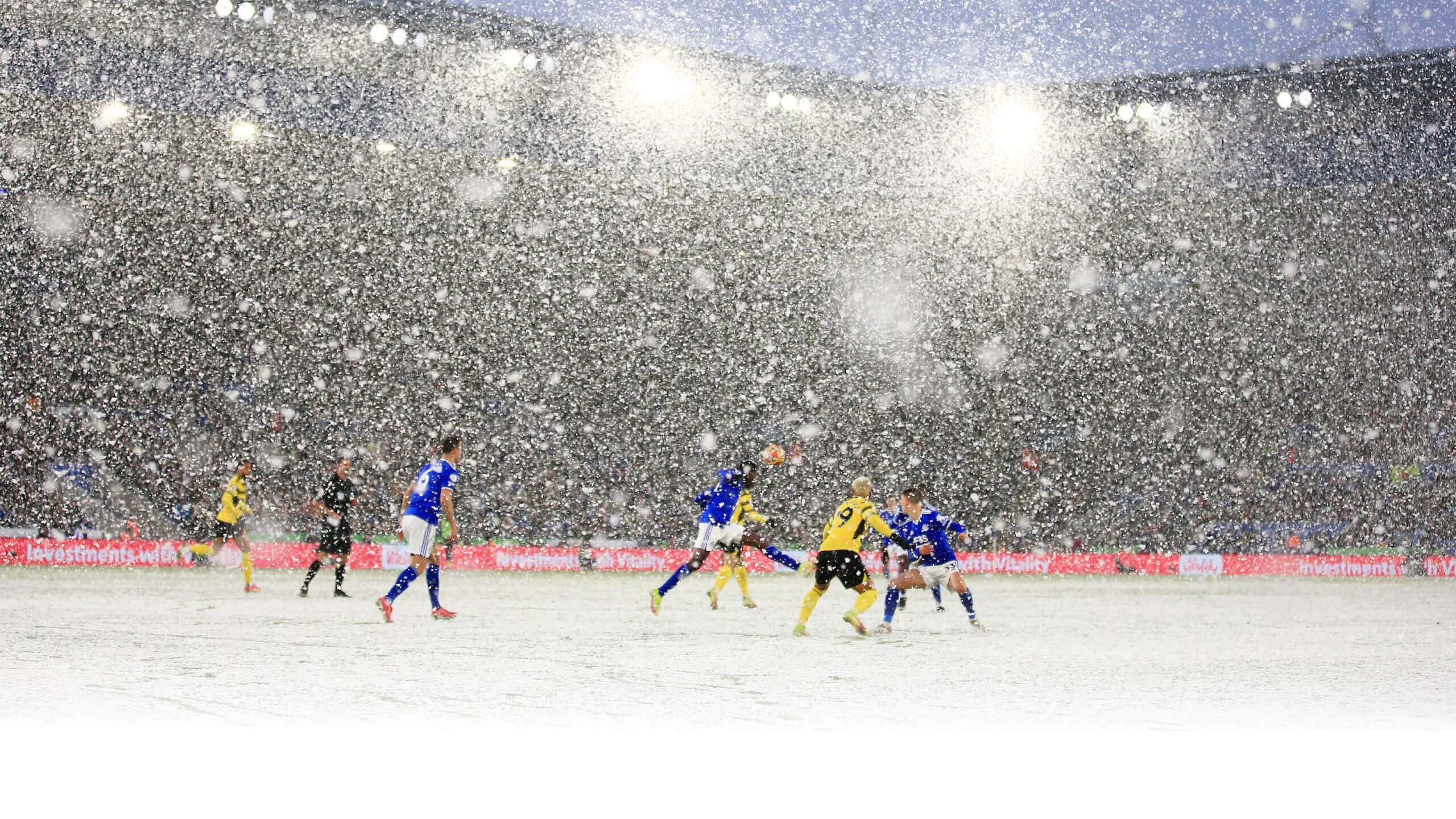
On 15 August 2022, it will be 30 years since a ball was first kicked in anger in the Premier League.
To mark the anniversary, we have partnered with Shutterstock Editorial to compile some of the best Premier League photos, which we are presenting to you below in largely chronological order.
Our list is not designed to tell the whole story of the past three decades. Inevitably, some of your favourite moments may not be represented, such is the richness of the rebranded English top flight's history.
We hope, though, it will remind you of some of the great goals, thrilling moments and wonderful characters that have populated the Premier League since it began in 1992.

The Premier League arrived with a bang. Eventually.
Observers of its first-ever weekend of football would not have noticed much difference from the old First Division, barring the new logos ironed on to shirts and dotted around grounds.
It was not until the first Monday night game between Manchester City and QPR, shown live on Sky, that the fireworks began. Literally.
The pre-match build-up was awash with pyrotechnics, while the pitch at City's Maine Road ground was populated by cheerleaders wearing T-shirts bearing the name of Sky Sports, the division's new broadcast partner.
It seems loose change by today's footballing standards, but the £304m in TV money - offered in a five-year deal - was beyond anything the English game had witnessed. The new competition's 22 clubs must have felt they had struck it rich.
Certainly, the new deal promised glitz and glamour on a hitherto unseen scale. "A whole new ball game," declared the Sky advert at the time, featuring Anders Limpar splashing his face with water post-shave, Tony Daley pumping iron and Gordon Durie, David Hirst and Vinnie Jones having a laugh in the shower.
The very first goal scored in the division had an air of cliched Englishness about it - a Brian Deane close-range header from a flicked-on Carl Bradshaw long throw.
It helped Dave Bassett's Sheffield United to a 2-1 win over Alex Ferguson's Manchester United at a sun-drenched Bramall Lane in August 1992.
Deane may have scored the first of an overall Premier League goals tally that now stands at more than 30,000, but arguably the most important netted in that first season came from a man who would be a regular in the division over the next 30 seasons as both player and manager.
Steve Bruce's two late headers helped Manchester United come back from a goal down to beat Sheffield Wednesday in April 1993 - and it took them to the top of the Premier League at a crucial time.
United had edged ahead of rivals Aston Villa with five games to play - and would win the lot to claim the very first Premier League title. It would not be their last under Ferguson.
While there were cheers at Old Trafford for the launch of one managerial dynasty, there were tears at the City Ground as another came to an end.
Brian Clough had been in club management since 1965, with 18 of his 28 years as a gaffer spent at Nottingham Forest.
Clough was as charismatic as he was capable - outspoken, funny and occasionally controversial. He has been dubbed "the greatest manager England never had".
He and Forest loved each other. He led them back into the top flight in 1977, at the end of his second full season, won the First Division title a year later and then delivered back-to-back European Cups.

Clough's time at the club - and in management - would end on a low note, though.
With two games remaining in a season of struggle, and amid talk of a rift between himself and the Forest board and concerns over his health, Clough announced his decision to call it a day at the end of the campaign.
His final home game - a 2-0 loss to Sheffield United - brought a mixture of sadness and celebration as Forest digested relegation while also hailing their greatest-ever manager.
Clough, sporting his trademark green jumper, hugged police, waved to the crowd and was visibly emotional as he was mobbed by fans at the final whistle.



The Premier League would go from strength to strength in the seasons that followed.
It was still recognisably English in many ways...

But now superstars from abroad were making their way to these shores.
Before, such players had flocked to Italy and Spain, but now they came to England, imbuing the country's top flight with a new breed of player and personality.
These were talents that would leave fans stunned by their athletic prowess and eccentricities... for better and worse...






Eric Cantona was arguably the most influential player in the early years of the Premier League, inspiring Manchester United and acting as a catalyst for their most successful period after moving from Leeds, with whom he had won the last old Division One title.
The Frenchman was a controversial figure in his homeland, as famed for his volatility and occasional petulant displays of violence on the pitch as his ability to muster something from nothing with the ball.
In England, he had demonstrated largely the latter, resulting in some memorable moments but also making him a marked man.

His worst impulses would resurface in jaw-dropping fashion at Selhurst Park on 25 January 1995.
Having seen what he perceived as some Crystal Palace rough-housing at his expense go unpunished by the referee, Cantona took matters into his own hands by aiming a kick at Richard Shaw to prompt a red card from Alan Wilkie. The real drama was still to come, though.
As he walked down the touchline, the player was verbally abused by Matthew Simmons and responded by launching himself feet first, kung-fu style, into the Palace fan.
It became THE talking point in football and prompted a media storm. In response to the incident, United banned Cantona until the end of the season and fined him two weeks' wages. The Football Association responded by extending the ban until 1 October. Cantona was also sentenced to two weeks in jail - later overturned on appeal.
When the Frenchman did eventually face the media in the aftermath, he uttered a sentence that has gone down in Premier League folklore: "When the seagulls follow the trawler, it’s because they think sardines will be thrown into the sea."
In Cantona's absence, United lost the title to a Blackburn side inspired by the money of Jack Walker, the management of Kenny Dalglish and the goals of Alan Shearer.
It still went down to the wire, with Rovers losing at Liverpool on the final day but taking the crown by a single point as United could only draw at West Ham.
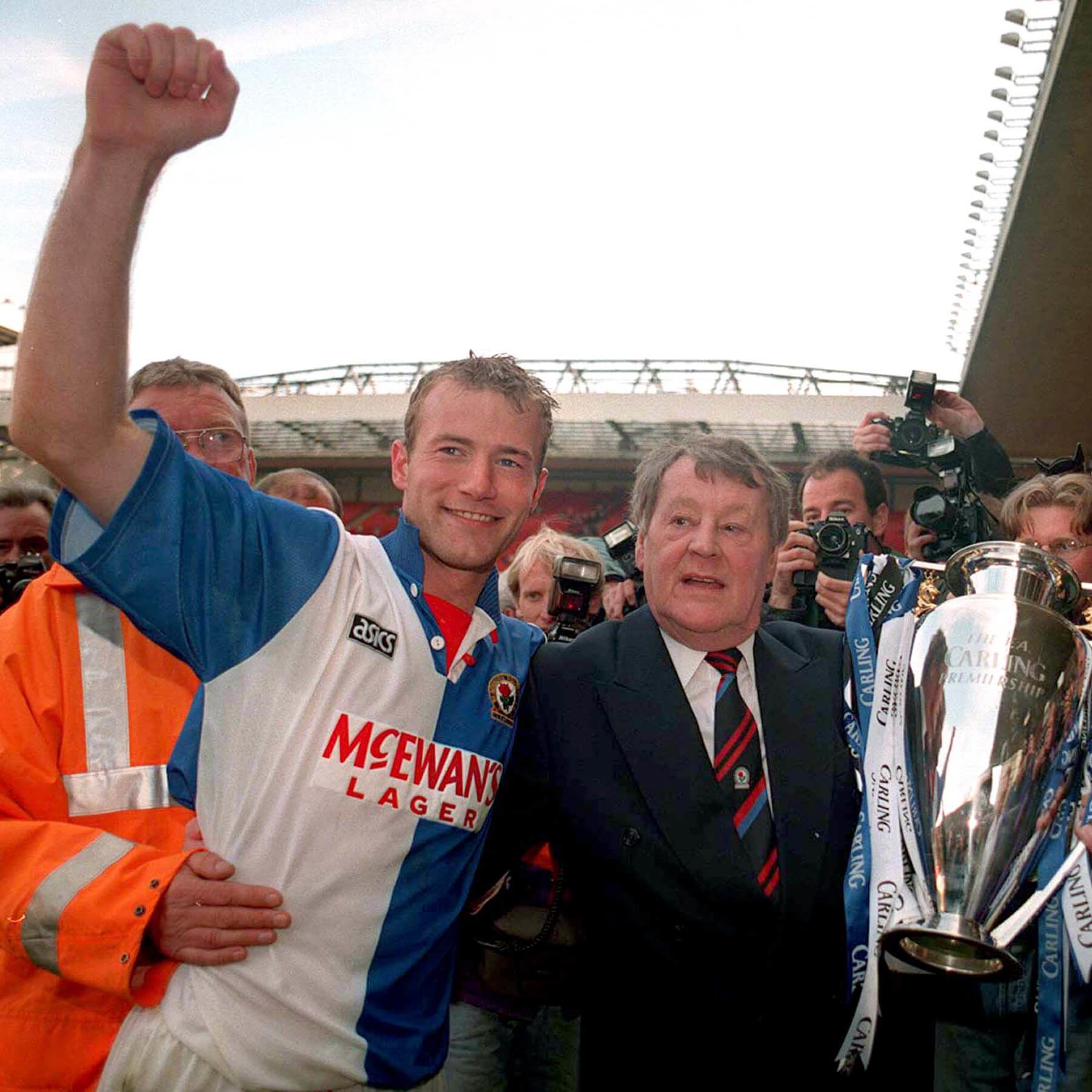
United would hit back with a vengeance.
Cantona returned to action in style, setting up one goal before scoring himself from the penalty spot to secure a 2-2 draw with Liverpool at Old Trafford in his comeback game.

The Frenchman would again be the inspiration for his side, helping them come back from being 12 points behind Newcastle in January to reclaim the title.
The race was arguably the finest the Premier League has ever witnessed and included possibly its best-ever game - Liverpool's see-saw 4-3 victory over Kevin Keegan's Magpies on 3 April 1996.
Stan Collymore scored the winner that night in the 92nd minute, sending Anfield barmy and leaving Keegan slumped over the ground's advertising boards.
A few weeks later, Keegan would launch into his infamous post-match rant about United and Alex Ferguson in which he declared he would "love it if we beat them... love it". They didn't.

While the red side of Manchester celebrated at the end of the 1995-96 season, the other side was very blue indeed.

Alan Ball's Manchester City got off to a shocking start, losing eight of their first nine games and not winning until November. They never fully recovered.
However, on the final day of the campaign they still had a chance to stay in the division, sitting 18th but only on goal difference behind Southampton and Coventry.
Things got off to a dreadful start as Liverpool took a 2-0 lead at Maine Road, but City fought back brilliantly to draw level. With Saints and Coventry both drawing, Ball's team had 11 minutes to find a goal to keep them up.
Unfortunately, in these pre-internet days, information from elsewhere was largely reliant on the radio and television and word got down to Ball that a draw would be enough for his team. It was not.
Cue them wasting precious time by taking the ball into the corner.
When word finally got through that they needed a goal, there wasn't enough time to get it. With all three relegation candidates drawing, City went down on goal difference.

It took some time, and a journey to the third tier and back, but City would eventually find redemption for this final day chaos with the most famous late goal in Premier League history.
For now, though, the red side remained firmly in the ascendancy, thanks to a stellar crop of bright, young things...


"You can't win anything with kids."
This was Alan Hansen's assessment of Manchester United on Match of the Day after they began the 1995-96 season with a 3-1 loss at Aston Villa and a team containing a host of academy products.
United would prove Hansen wrong that season and continue to do so in the seasons that followed.
A year on from that Villa defeat, one of those academy lads, David Beckham, underlined the point by scoring from the halfway line against Wimbledon in a 3-0 opening-day win.
Another title followed.

United may have been able to rely on a bumper crop of their own talent, but that did not stop high-profile foreign players continuing to flood to the Premier League.
At Chelsea, Dutch maestro Ruud Gullit's arrival from Sampdoria opened the gates to an influx of talent, largely from Italy, including Gianluca Vialli, Roberto di Matteo and Gianfranco Zola.
Another Italian superstar, Fabrizio Ravanelli, joined Brazilian wizard Juninho at Middlesbrough.
Meanwhile, over on Tyneside, Newcastle splashed out a world record £15m to bring Alan Shearer home.
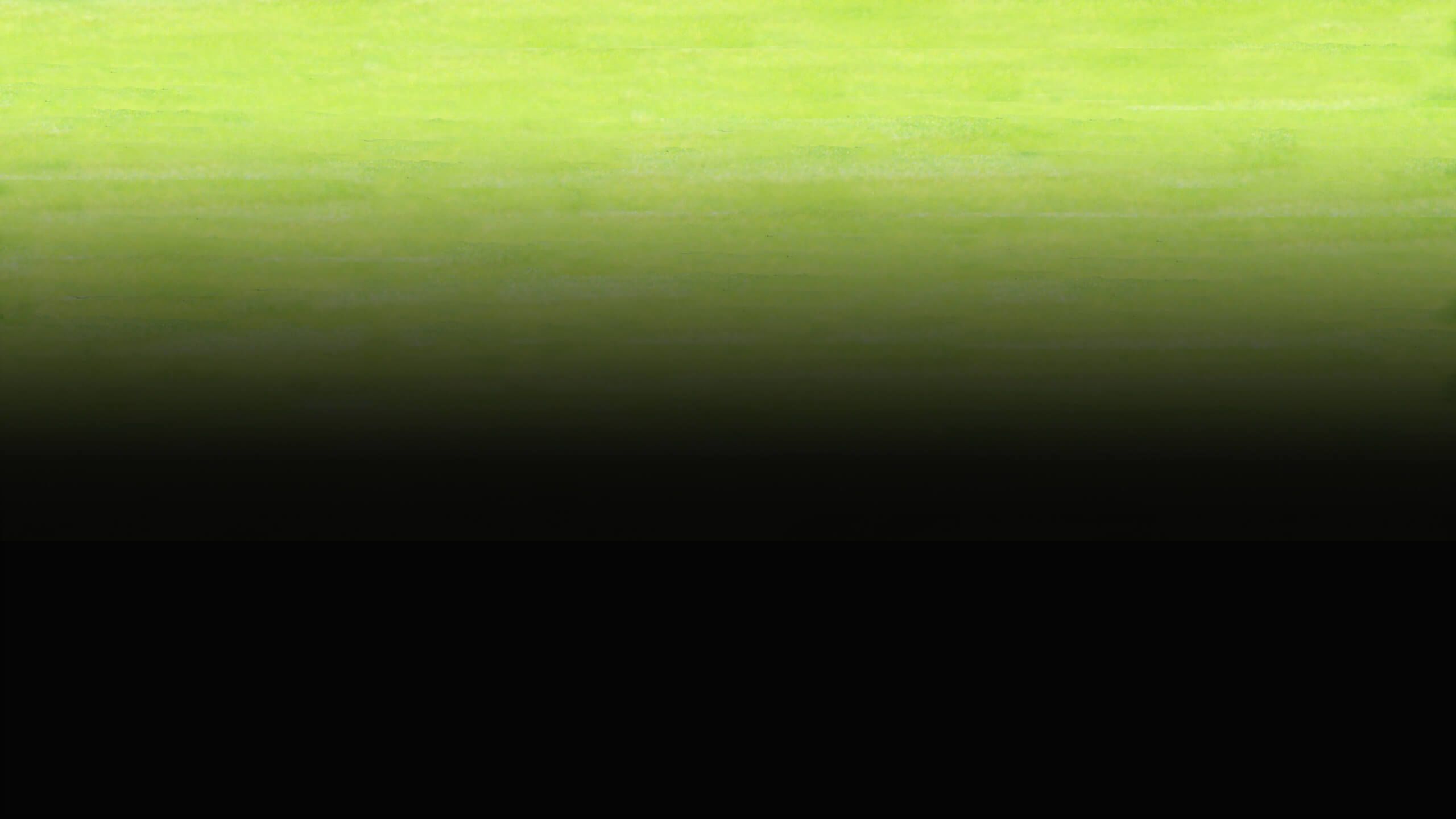






The late 1990s and early 2000s were not just Manchester United's to rule.
In north London, Arsenal stirred back into life under the revolutionary regime of a French coach few in England had heard of before his arrival in September 1996.
Arsene Wenger set about modernising the club, both on an off the field, leaning into some of work done by one of his predecessors George Graham - particularly his famed defence - while adding attacking talent and a brand of football to get fans out of their seats.
Despite a 12-game unbeaten start to 1997-98, the Gunners looked to have dropped out of title contention thanks to a run of four losses in six games in November and December.
However, the Gunners rallied to once again threaten Manchester United's lead at the top before Marc Overmars' winner at Old Trafford in March really ignited the title race.
They followed that key win with eight straight victories, the last of which - a 4-0 home win over Everton, capped off by a superb goal from captain Tony Adams - gave them the trophy.

Arsenal's title win in 1997-98 was the first of seven seasons in which Arsenal and Manchester United would dominate the pinnacle of the top-flight table in England.

In response to losing out to the Gunners in '98, United responded with a hat-trick of title wins, including one as part of their historic 1998-99 treble.
The rivalry between the two clubs from this period remains arguably the Premier League's greatest - one characterised by respect but also a fierce competitive spirit that often spilled over on and off the pitch.
There were red cards, melees, sniping and mind games, and (allegedly) a slice of pizza thrown at Ferguson during one tunnel scrap.
No two players embodied the battling spirit like Arsenal's Patrick Vieira and United's Roy Keane. Both midfield generals, both incapable of taking a backward step.

The above image, from a 1-1 draw at Old Trafford in February 1999, is one of many depicting the two clashing.
United won more titles during this period of intense rivalry between the two, but Arsenal's trump card will always be 2003-04 - 'The Invincibles' season.
In that league campaign, the Gunners played 38 games, won 26, drew 12 and lost none.
To date, it remains the only time a club have gone through a Premier League campaign unbeaten and just the second time - along with Preston in the inaugural Football League season of 1888-89 - that it has been achieved in England.
To make it that little bit sweeter, the title-clinching result was a 2-2 draw at White Hart Lane - the home of north London rivals Tottenham.

It allowed the team to celebrate their success on the turf of their fiercest rivals, and they took full advantage.
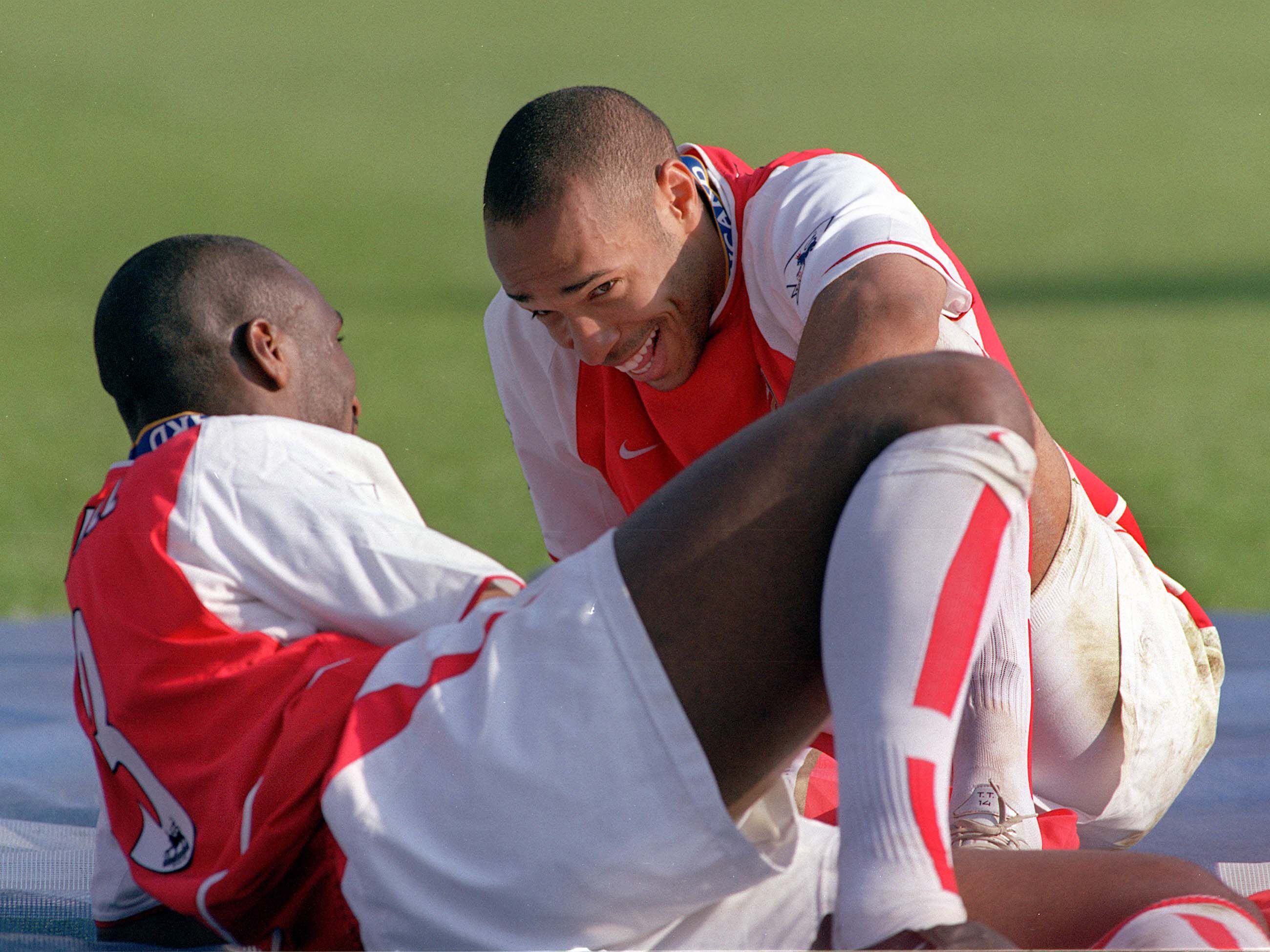
In one part of London, it was all smiles. In another, something was brewing that would change the landscape of football in England forever...



In July 2003, long-standing chairman Ken Bates sold Chelsea to Russian billionaire Roman Abramovich, who quickly set about spending at a level unseen before in English football.
Helped by a vast array of new signings, they finished second behind Arsenal in 2003-04 under the management of Claudio Ranieri.
It would be the arrival of his successor that would really act as the launchpad for the Blues' new ambitions - an outspoken but brilliant Portuguese boss who quickly styled himself as 'The Special One'.

Jose Mourinho arrived straight after winning the Champions League with Porto, and set about filling the trophy cabinet at Stamford Bridge.
He won the Premier League in each of his first two seasons as the Blues dominated.

A second-place finish to Manchester United in 2006-07 showed the first sign of cracks in Mourinho's reign.
These soon widened significantly. An indifferent start to the campaign, coupled with suggestions of a frayed relationship with Abramovich, led to him leaving the club just six league games in.
There would still be another chapter in the Mourinho-Chelsea story, though, with the Portuguese returning in June 2013 to deliver another league title before departing again under a cloud in December 2015.
Another long-running saga from this period of Premier League history involves the controversial signing of Carlos Tevez by West Ham and the role he subsequently played in keeping the Hammers up at Sheffield United's expense.
Tevez's recruitment enraged rival clubs, who claimed foul play over third-party ownership involved in the deal. The Blades suffered most as Tevez's seven goals in 10 games at the end of the 2006-07 season - including a winner at Old Trafford on the final day - sent them down.

Having been initially fined £5.5m for breaking Premier League rules, West Ham and Sheffield United reached an out-of-court settlement to end their dispute over the affair in 2009.
Hull boss Phil Brown made headlines for what he did on the pitch at Manchester City on 26 December 2008. With his team 4-0 down at half-time, Brown had his players sit down on the turf as he delivered his team talk out in the open. Hull lost the game 5-1.
But 11 months later, the episode gave Hull midfielder Jimmy Bullard an idea. After his penalty gave the Tigers a 1-1 draw at City, Bullard celebrated by mocking the previous season's open-air team talk.
It was matters off the pitch at Etihad Stadium - where City had moved on leaving Maine Road in 2003 - that seemed to be of most interest, though.
In a league already awash with cash, City had more than most following their takeover by Sheikh Mansour bin Zayed Al Nahyan's Abu Dhabi United Group. It was yet another leap forward in terms of the kind of eye-watering amount of money within the Premier League.

The symbolic first signing of the new era at City, Brazilian Robinho, got off to a spectacular start, scoring on his debut, but the 3-1 loss to Chelsea that day - and the 10th-place finish come the end of the season - demonstrated how far City still had to go.
Instead, the red side of Manchester continued to dominate, winning four of the five titles on offer between 2006-07 and 2010-11.
Their superiority was spearheaded by two of the finest attacking talents the Premier League has known.
Cristiano Ronaldo began his time in England as a talented but slight winger with work to do on his end product. He ended it as arguably the finest forward of the modern era.
Across his final three league seasons of this first spell at Old Trafford, he netted 66 goals in 101 games - a sign of the monumental scoring feats to come during his subsequent time at Real Madrid.

Wayne Rooney was alongside Ronaldo in United's attack during these years, and shouldered their goalscoring burden when the Portuguese left in the summer of 2009.
In 393 Premier League games for Manchester United, Rooney scored 183 times, overtaking Sir Bobby Charlton as the club's record all-time goalscorer.
His finest is very likely the stunning bicycle kick that gave United a 2-1 win over Manchester City en route to winning the 2010-11 title.
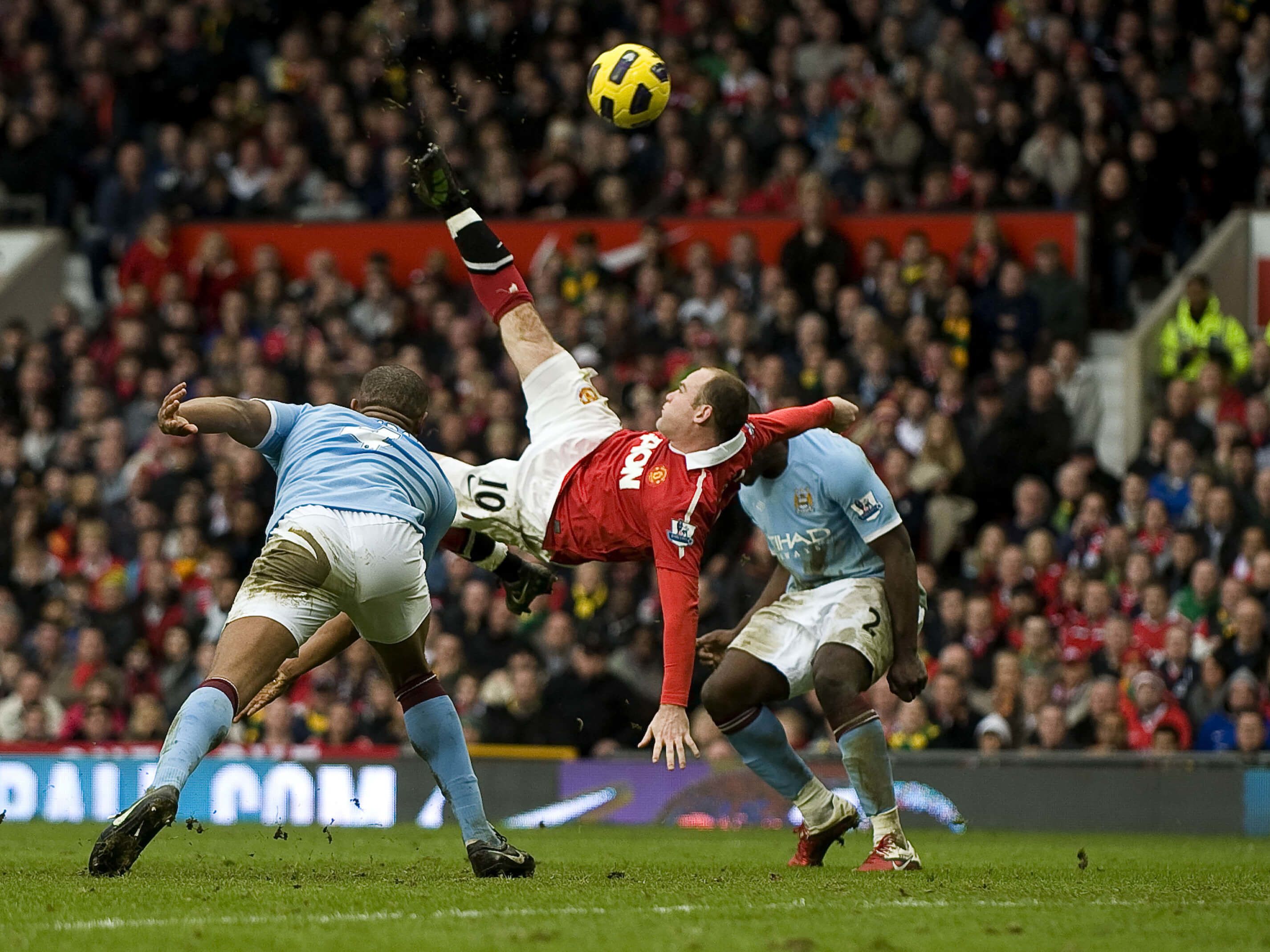
City would not have to wait long for their revenge, though, achieved via the most sensational and dramatic of all Premier League finales...


The 94th-minute winner scored by Manchester City striker Sergio Aguero against QPR on the final day of the 2011-12 season is forever etched in Premier League folklore. It is arguably its greatest-ever moment.
City needed a win to be certain of the title. But as they entered five minutes of stoppage time, they trailed 2-1. Edin Dzeko equalised in the second added minute, but City's hopes of a first league title since 1968 were set to disappear in agonising fashion.
Rivals United had won at Sunderland. Their players, staff and fans stood at the Stadium of Light, awaiting a final score from Etihad Stadium that would confirm them as champions again.
Then Mario Balotelli poked a pass through into the Rangers box. Aguero skipped around a defender and fired home. Utter bedlam.

It gave City the title on goal difference from their fierce rivals and served notice that the "noisy neighbours", as Ferguson had once dubbed them, we're ready to mix it with United and the rest.
Ferguson was not done yet, though.


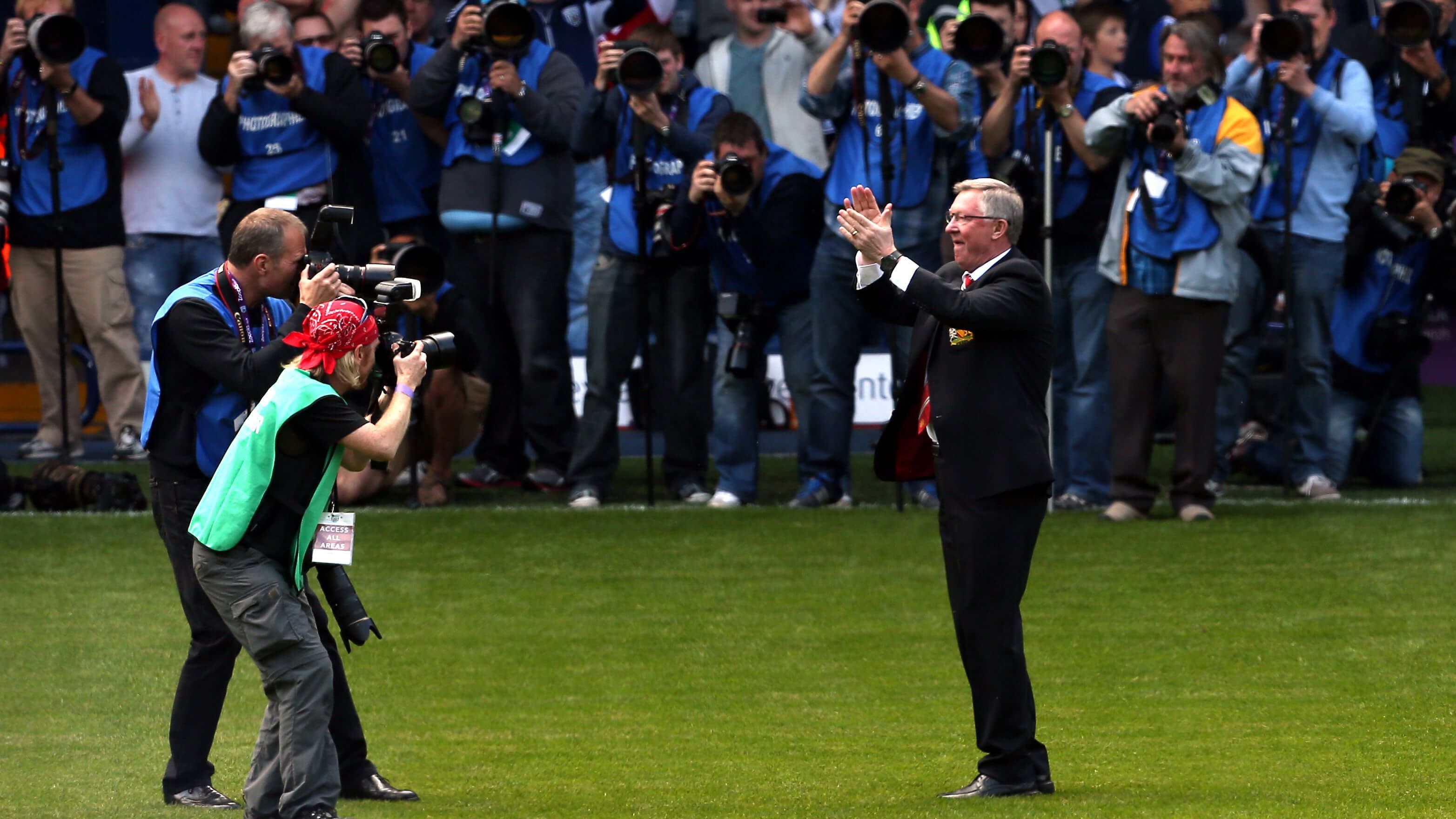



The Scot - now Sir Alex, having been knighted in 1999 - had planned to retire in 2002 but reversed his decision, much to United's benefit. The end did come in 2013, but only after he delivered one final Premier League title - the 13th of his 26 years in charge.
That league crown remains United's last to date.
Having being knocked off their perch by Ferguson and his Manchester United, Liverpool - who had won the last of their then 18 titles in 1990 - were immediately looking to get back on it following the Scot's departure.
They may have done it too in 2014. With three games to go, destiny was in their hands. But then Steven Gerrard's slip allowed Chelsea striker Demba Ba to score the first in a 2-0 away win at Anfield.

The Reds now had to improve their goal difference to put pressure on Manuel Pellegrini's Manchester City -but threw away a 3-0 lead in their penultimate game, at Crystal Palace, to draw 3-3 and hand the title initiative to City, who made no mistake.



Two seasons later, another club beginning with L would not fail to take their chance - one priced at a whopping 5,000-1 before a ball was kicked...

If Manchester City's 2011-12 title win is the most dramatic, Leicester City's success four seasons later is the most unexpected.
The Foxes had spent half of the previous season in the bottom three, with only a superb run of late form enough to save them from the drop.
Having swapped boss Nigel Pearson for Claudio Ranieri, they were expected to struggle again. Instead, the Italian discovered alchemy at King Power Stadium.
A settled, consistent side, with Kasper Schmeichel in goal, a solid back four protected by N'Golo Kante and with Riyad Mahrez providing the opportunities for Jamie Vardy up front, upset the Premier League establishment and shocked the world.

Second to Leicester that season were Arsenal, but this represents the last time to date that the club have finished in the top four and qualified for the Champions League.
Wenger had revolutionised the club in his first few seasons, but the last of his three league titles had come 12 years earlier. On the pitch, the Gunners were in decline.
A mutual parting of ways came at the end of 2017-18, giving the club a chance to say a proper merci and au revoir.
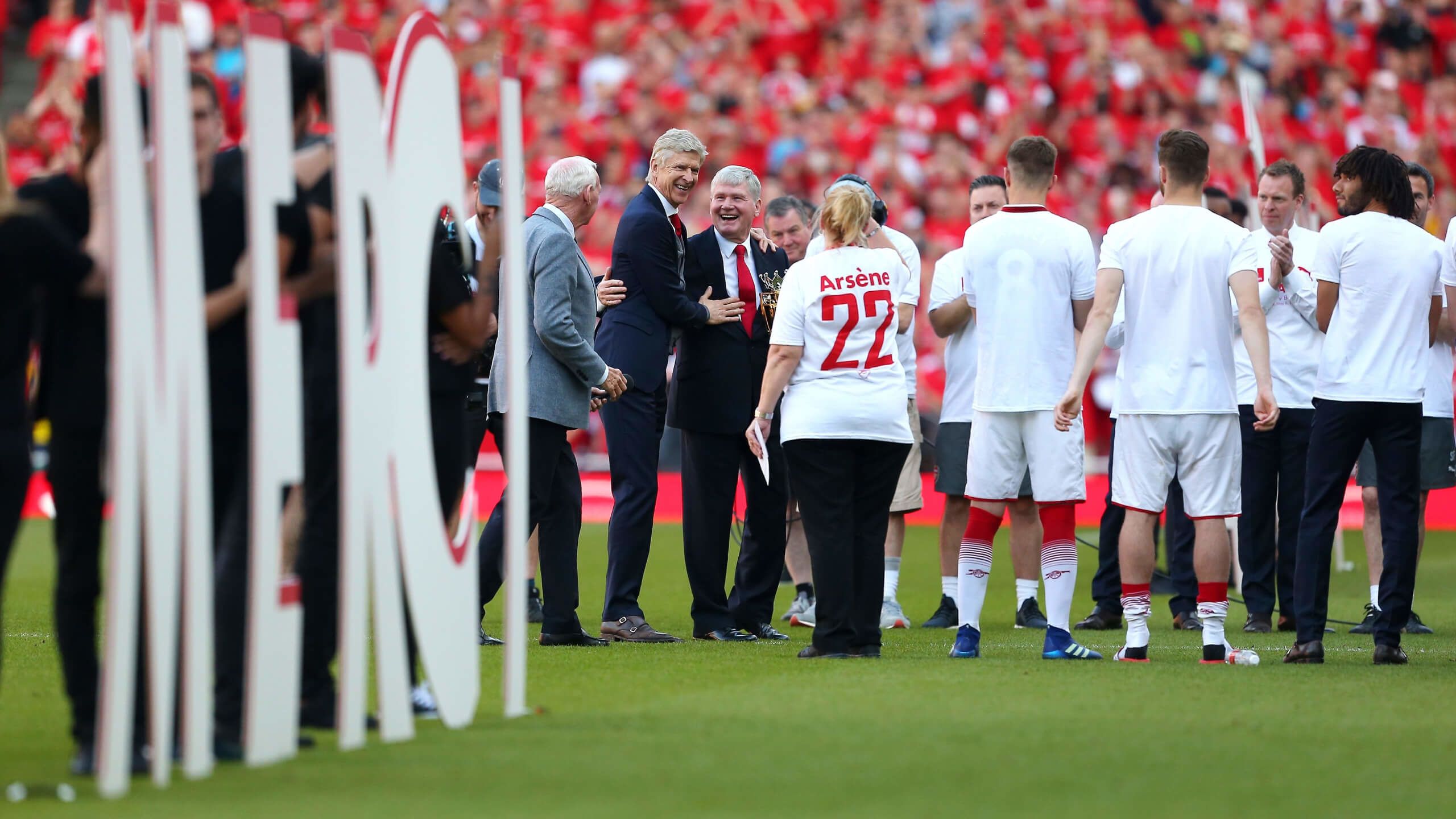

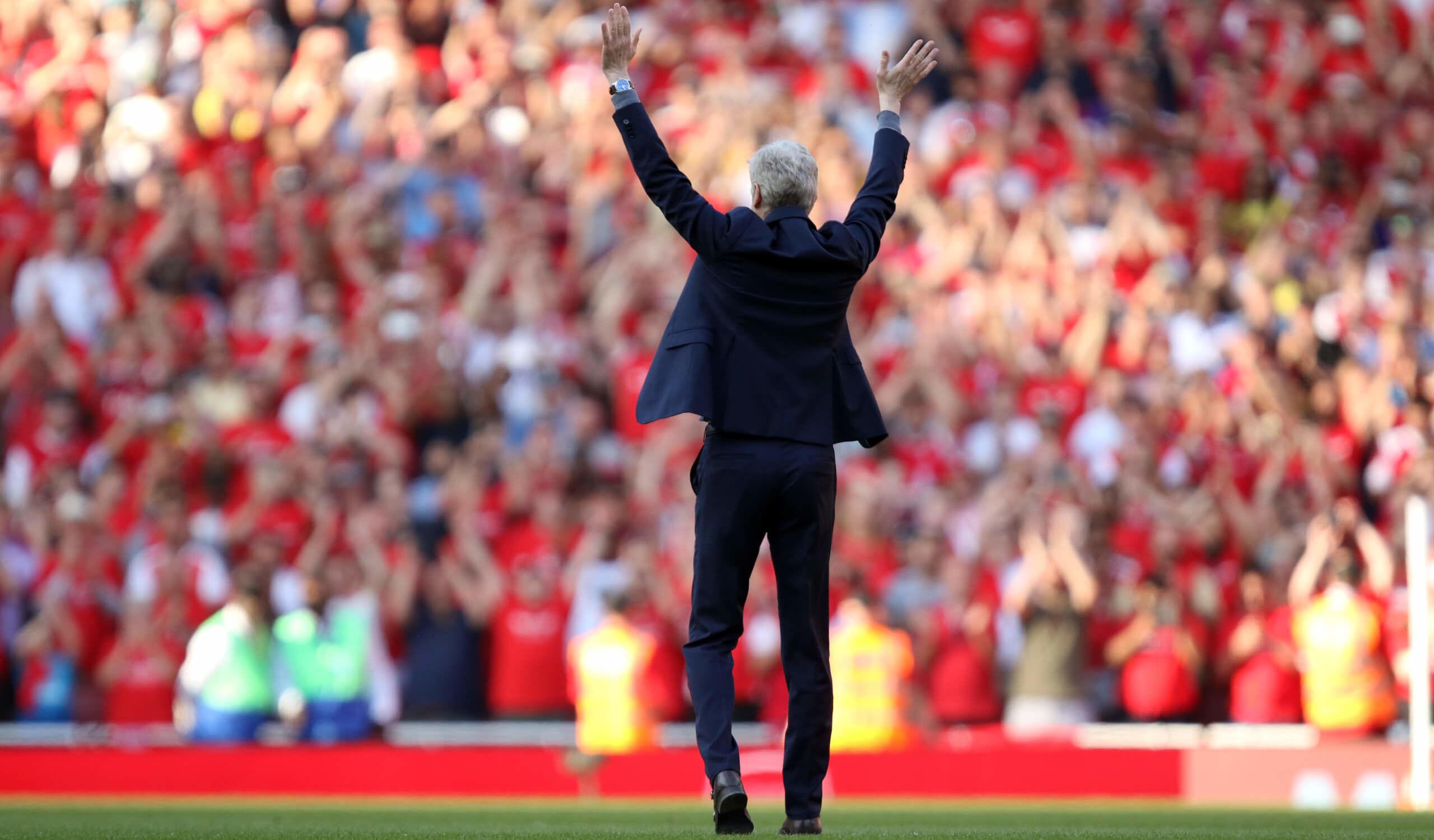



The rivalry between Arsene Wenger's Arsenal and Sir Alex Ferguson's Manchester United defined the first dozen years of the Premier League.
The past five have been dominated by a new titanic tussle between two managers and their high-calibre teams - one that began in Germany and is now reaching new heights in England.
Jurgen Klopp arrived in England to take over as manager of Liverpool in October 2015, with Pep Guardiola becoming Manchester City boss nine months later.
Chelsea would beat both to the title in 2016-17, but since then it has largely been a haymaker-throwing, record-breaking tussle between two of European football's heavyweight gaffers.

Four of the past five Premier League titles have gone to Guardiola's City, during which they have set new records for most points (100), goals (106) and biggest goal difference in a season (+79).

Klopp's Liverpool have largely gone toe-to-toe with them for the past four campaigns, missing out in the title race to City by a single point in both 2018-19 and 2021-22, despite accruing 97 and 92 points respectively in those seasons.

The Reds did come out on top in 2019-20, ending their 30-year wait for a 19th league title.
The coronavirus pandemic meant that the players lifted the trophy inside a largely empty Anfield, but it did not stop fans gathering to celebrate outside the ground.





English football has changed in so many ways since the first season of the Premier League back in 1992-93. The rebranding and greater exposure were seen as a huge step forward, but few could have predicted just how big the country's top flight would become. And it continues to change and develop all the time.
The latest big alteration came in the shape of a video assistant referee (VAR) in 2019, ushering in a new era of technology-assisted decision making for the game.
But while much has changed over 30 years, it is reassuring to know that many aspects of football in England remain the same.
The pyrotechnics are still going off, players are still filming awkward adverts in which they splash their face with water after a shave and teams are still scoring close-range headers from badly defended long throws. Long may it continue.
Credits
Writer and producer: Phil Dawkes
Images: Shutterstock Editorial
Editor: John Stanton
Sub-editor: Mike Whalley
